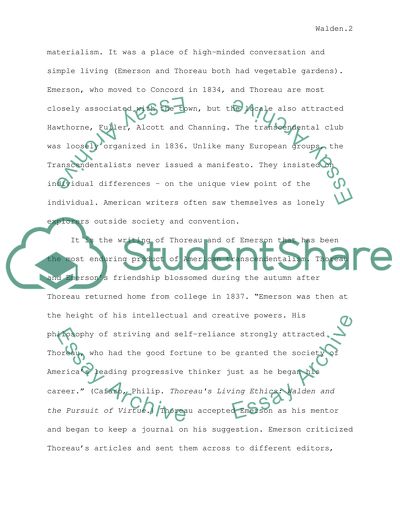Cite this document
(“Transcendentalism in Thoreaus Walden Essay Example | Topics and Well Written Essays - 2250 words”, n.d.)
Retrieved from https://studentshare.org/miscellaneous/1515594-transcendentalism-in-thoreaus-walden
Retrieved from https://studentshare.org/miscellaneous/1515594-transcendentalism-in-thoreaus-walden
(Transcendentalism in Thoreaus Walden Essay Example | Topics and Well Written Essays - 2250 Words)
https://studentshare.org/miscellaneous/1515594-transcendentalism-in-thoreaus-walden.
https://studentshare.org/miscellaneous/1515594-transcendentalism-in-thoreaus-walden.
“Transcendentalism in Thoreaus Walden Essay Example | Topics and Well Written Essays - 2250 Words”, n.d. https://studentshare.org/miscellaneous/1515594-transcendentalism-in-thoreaus-walden.


